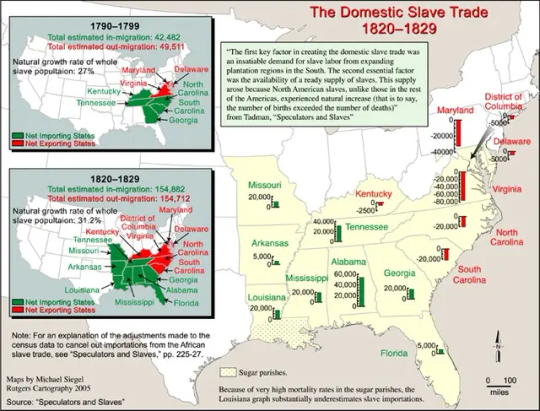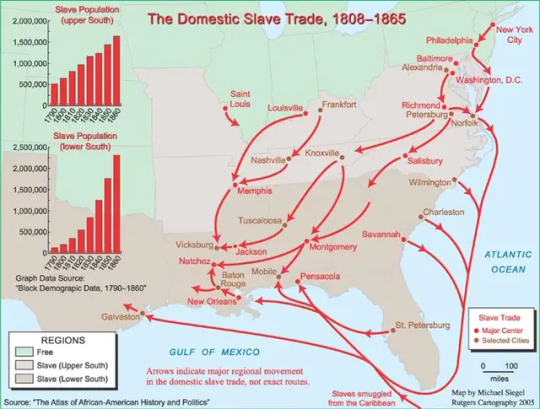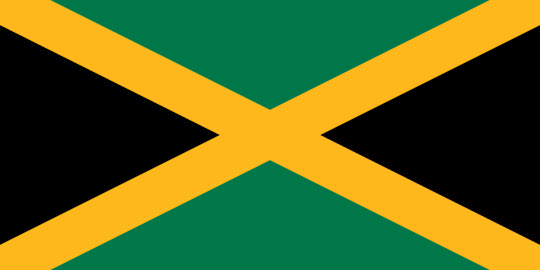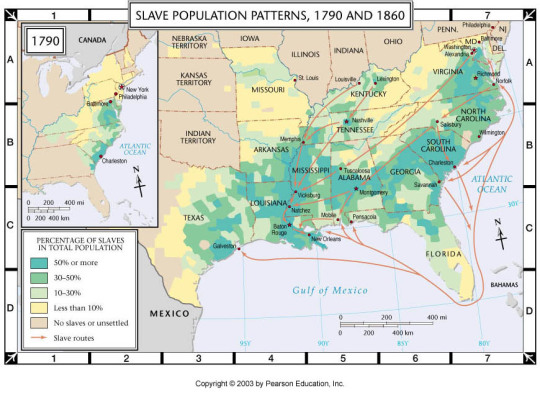#and the americo-liberians
Explore tagged Tumblr posts
Text
There is an American-Korean (note the order) representative in the Korean National Assembly named Ihn Yo-han, whose family arrived in Korea in 1895 as missionaries; his parents were deported to the United States in 1940 by Japan, but later returned, and he was born in North Jeolla and apparently speaks Korean with a strong regional accent. He's also a right-wing nut who thinks AIDS was created by people failing to follow the Bible, that the Korean national health service is socialist, and he's a member of Yoon's party, and voted against impeaching him. Just a really wild figure!
South Korea has three "special self-governing provinces/states," and I am really curious to know why those provinces (North Jeolla, Jeju, Gangwon) were granted special status. Usually when a national subdivision has some kind of special autonomous status it's because of some specific historical circumstance, or the presence of a significant ethnic minority, but I can't really figure out what the deal is with those provinces specifically. Unfortunately all three also have really awful flags.
Jeju Island has some kickass volcanic geography. Some decent photos on this page.
#here have some fun wikipedia facts#need more countries with wacky ethnically american minorities#there's like this guy and the confederados in brazil#and the americo-liberians
54 notes
·
View notes
Text
By the way, if this is difficult or too directly emotional to immediately understand as it applies to Palestine and the Israeli occupation, a helpful (non-original) corollary with some historical distance might be:
The problem with Americo-Liberians is not that they lacked recent and generational trauma they could point to; it's not that they lacked ancestral ties to some part of West Africa; and it's not that they failed on some arbitrary standard of blood quantum to deserve to live full, happy lives "back" in Africa.
The problem is the Americo-Liberians set up settler colony ruled by themselves for a hundred years at the expense of the indigenous West Africans.

For a hopefully clarifying counterfactual:
If the "American Colonization Society" had continued to exist deeper into the 20th century, and the "Great Migration" had not been from the U.S. South to the cities of the U.S. West, Midwest, and Northeast, but instead had involved millions of Black Americans settling in Liberia to create a reliable U.S. military ally against recently decolonized West African states that resembled a smaller version of our timeline's Israel/South Africa — that would not be reparation for chattel slavery. It would not be necessary to protect Black Americans from further enslavement, Jim Crow, and lynchings, and it would not be a more acceptable form of colonization just because all parties involved were considered "Black" under classical racist categories.
It would still be completely unjustifiable and atrocious because of the power relationship and structures of domination involved.
"Race" is not based on anything biologically real, but the hierarchies that racism enforces on populations are very real, and since the 16th century, what we recognize as colonialism has usually needed to justify itself on something called essential and unchangeable like race rather than more fungible identities like religion or language.
no cause some of the shit y'all are saying has me genuinely worried that you don't understand the difference between immigration and SETTLER COLONIALISM. y'all do realize that if jewish people just mass migrated to palestine and lived peacefully among palestinians as neighbors and countrymen, then none of this would be a problem. right? you get that, right? you get that our issue was never "there's too many jews here" but rather "why am i getting kicked out of my house." RIGHT?
53K notes
·
View notes
Text
Liberia was created to be a new home for former slaves from the US and the Americo-Liberian population quickly became a ruling caste enriched by a plantation economy which relied upon the forced unpaid labor the people indigenous to the region. Which is to say, Liberia wound up mirroring the same oppression that it’s settlers were themselves freeing from. It’s not a stretch to say that with Israel we see a similar mirroring though rather than a plantation economy using slaves we see a mirroring of early 20th century European genocidal ethno-nationalism
I for one, think there may be something inherently broken in the premise of telling people that a bunch of land is now theirs and that they are now the masters of the people that were already living there
546 notes
·
View notes
Text
10 Cool Jewish Women from Modern Day! Part 2 because I'm on a role
Liz Kleinrock, a self-described "Korean, Jewish, queer, transracial adoptee, antibias and antiracist nationally recognized educator, author, and consultant." Born in Korea, she was adopted by an Ashkenazi Jewish family in Washington D.C.. Involved in education, with a Masters in UCLA's Teacher Education Program, she has taught in California and D.C., and has also worked as a school librarian. In 2018, she received Learning for Justice's Award for Excellence in Teaching.
Loolwa Khazzoom, an Iraqi-American writer, journalist, activist, musician, and feminist. She was heavily involved in the Jewish feminist movement of the 1990s and is the founder of the Jewish Multicultural Project, which provides resources to Jewish communities about diversity in Jewish culture. She has also been involved in SOJIAC and JIMENA. Raised in California to an American Jewish mother and an Iraqi Jewish father, she graduated from Barnard College in 1991. She participated in a filming about the interplay of race and gender in America called The Way Home. She is the lead singer and bass player of Iraqis in Pajamas, a punk rock band that uses traditional Iraqi and Jewish musical elements.
Ariela Sofer, and Israeli and American operations researcher who is a professor of systems engineering and operations research, as well as a Divisional Dean, at George Mason Acamdey. She is a published author, with two books on Lineaer and Nonlinear Programming. Named as a Fellow of the Institute for Operations Research and the Management Sciences in 2016, she is also a Fellow of the Institute of Industrial and System Engineers and the International Council on Systems Engineering.
Ayelet Newman, also known as Ayelet the Kosher Comic, is an Orthodox stand up comedian. Born to a secular Jewish family on long Island, she pursued a career in TV and film after high school, appearing in The Hebrew Hammer. She became a baalat teshuva in the early 2000s, when she quit acting and began pursuing comedy, performing only for women.
Adina Sash, a Brooklyn raised American Jewish activist and social media influencer, also known as FlatbushGirl. Holding a Master's degree in Medieval literature from Brooklyn College, her online activism was started after receiving sexist comments. In 2017,s he launched a social media campaign called #FrumWomenHaveFaces that raised awareness of the erasing of women from Orthodox newspapers and magazine, gaining the support of Mayim Bialik (Jewish actress).
Tova Ben-Dov, former president of the Women's International Zionist Organization and former vice president of the World Jewish Congress, as well as a board member for the Jewish Agency for Israel and the International Alliance of Women. She joined WIZO as a young mother, and worked in the Chair of Women's Training Department of WIZO Israel. In 2011, she was awarded Honoree of Tel Aviv, and in 2016 the title of Honorary Fellow of the World Zionist Congress.
Kat Graham, an American actress, singer, dancer, author, and activist. Born in Geneva, Switzerland, to an Americo-Liberian father and a Polish and Russian Jewish mother. Co-founder of he wellness company Modern Nirvana, she had released work focusing on self-help. She speaks English, French, Spanish, and some Hebrew and Portuguese. She is known for her role as Bonnie Bennett on the CW show The Vampire Diaries, and has released two extended plays and four studio albums. She has done work as a Goodwill Ambassador for the UN Refugee Agency, inspired by her family's history.
Dafna Bar-Sagi, an Israeli born cell biologist and cancer researcher at New York University School of Medicine. She is member of the scientific advisory boards, including the National Cancer Institute. A graduate of Bar-Ilan, where she earned her undergraduate and master's in neurobiology, she received her PhD in neurobiology from the State University of New York as Stony Brook. Her research focuses on the nature of he Ras oncogene and how Ras signaling leads to tumor development. She has been the vice dean for science, chief scientific officer, and executive vice president of NYU Langone Health.
Malika Kalontarova, a Tajikistan born Bukharian dancer known as the "Queen of Tajik and Oriental Dance." Rebellious as a child, she has always identified as Jewish, despite Antisemitism in Tajikstan. Trained by Ghaffor Valamatzoda and Remziye Tarsinova, she moved to Queens in 1993 where she opened up her own dance studio.
Jazz Jennings, an American spokeswoman and Queer activist. An honorary co-founder of he TransKids Purple Rainbow Foundation, which her parents founded in 2007, she is one of the youngest documented people to be recorded as transgender. She was accepted into and currently attends Harvard University. In 2013, at only 13 years old, she founded Purple Rainbow Tails, while engaging in a battle with the USSF to allow her to play on a girls' soccer team. She is a published author, and in 2014 was named one of the top 25 most influential teens. She has voiced several characters in an animated shows, and starred in an Amazon Prime movie.
11 notes
·
View notes
Text

I'm sorry, are we really hyping up the American Colonization Society as a "utopian nationalist movement" based on a "rejection of assimilation" in order to defend Israel? We're really going to defend Americo-Liberians, who set up a segregated ethnostate that was ultimately overthrown in a series of bloody civil wars?
The reason people don't bring up Liberia is because it's a case study of colonial failure and brutality. I almost can't believe Zionists are stupid enough to invoke the legacy of the ACS here. The entire project of deporting Black Africans to create colonial states in Africa was an abject failure, rejected by the majority of Black people and white abolitionists alike, and abandoned after the end of the Civil War.
I agree Liberia is the best comparison for Israel, and that fact condemns Israel.
70 notes
·
View notes
Text
My Justice League voice claims! I talk more abt them under the cut ^__^!
'Clark Kent' makes has a nasally voice, stutter and generally sounds a bit stupid and/or unsure of himself.
Superman has a faint transatlantic accent, with slightly exaggerated bass and a gently commanding tone.
As himself, he uses his natural Kansas accent, speaks more lackadaisically, and swears somewhat casually.
Bruce Wayne spent most of his life with Alfred as his only confidant and closest influence, so he has a bit of a British accent that he plays up for the public.
He's also an amazing voice actor, The Batman's voices are as varied as his gadgets.
Betty Allen has a pretty standard Americo-Liberian accent, and gets a stammer when nervous. She has a speech impediment that makes it harder to pronounce hard 'G' sounds.
Yelena Jovenko's Latvian, and kind of a jackass, and pretty full of herself. She has a pretty smiley voice, but easily switches into self-righteous indignation at the drop of a hat. She also knows a bit of Yiddish but doesn't speak it well.
Diana has an indeterminate accent that sounds a bit like a Turkic language. She's not great at translating her thoughts to words in general, lots of uhh's and eh's and pauses. She sings fantastically.
Arthur Curry always sounds like he's having a good time, although he doesn't seem to have an inside voice. His father was a pretty quiet man, so he mostly learned to talk through intercourse with European and American sailors.
J'onn J'onnz learned to speak English by reading random people's minds, watching television and eavesdropping on elementary and kindergarten classes. His voice is super deep cause he never got the vocal cords right.
#dc#justice league#superman#batman#betty allen#yelena jovenko#diana of themyscira#arthur curry#j'onn j'onnz#clark kent#bruce wayne#the flash#green lantern#wonder woman#aquaman#martian manhunter#my art#earth 888
45 notes
·
View notes
Text

Pastor Thomas McCants Stewart (December 28, 1853 - January 7, 1923) was born in Charleston, South Carolina to George Gilchrist and Anna Morris Stewart. He attended the Avery Normal Institute before enrolling in Howard University. Although only fifteen when he arrived on Howard’s campus, he distinguished himself as a student and contributed occasional articles to the New National Era, an African American newspaper.
He grew increasingly dissatisfied with the quality of instruction at Howard and became one of the first Black students to enroll in the University of South Carolina. He graduated with a BA and LLB.
He married Charlotte Pearl Harris and taught mathematics at the State Agricultural and Mechanical College in Orangeburg. He joined the law firm of South Carolina Congressman Robert Brown Elliott. He became an ordained minister in the African Methodist Episcopal Church and three years later was appointed pastor of the Bethel AME Church in New York.
He emerged as a national civil rights leader, respected attorney, and writer. He migrated to Liberia to serve as a professor at Liberia College. He returned to New York and wrote about his African experience in Liberia: The Americo-African Republic (1886).
He relocated to Hawaii. He hoped to advance his legal practice. He moved to London, England, and returned to Liberia, where he was appointed an Associate Justice of the Liberian Supreme Court. His criticism of Liberia’s president resulted in his removal from the court.
He returned to London, where he hoped to live out the remaining years of his life, he moved to the Virgin Islands. Regarded as an elder statesman, he established a legal practice with Christopher Payne, one of the island’s most experienced attorneys. #africanhistory365 #africanexcellence
7 notes
·
View notes
Text
Like persons of the Palestinian diaspora, and some in the Jewish community, I am a descendant of a displaced people (namely West Africans forcibly removed, brutalized, and enslaved). I understand desires to correct or minimize historical wrongs and return to a homeland. The founding and colonization of Liberia by African Americans in the 1820s was one attempt to correct the tragedy of American slavery. Viewing Africa as the “Promised Land,” African Americans, sponsored by the American Colonization Society, repatriated in West Africa. African Americans did this despite the fact that the region was already inhabited and settled by ethnic groups that had been there for centuries. Though empathizing with African Americans fleeing American racism, I must not forget that these settlers (now called Americo-Liberians) colonized and seized the lands of pre-existing West African populations. I admit this while recognizing that my beloved hometown of Petersburg, Virginia, and its historically large free Black population sent many Black settlers to Liberia (including Joseph Jenkins Roberts, the first president!). While ensuring that the histories of Blacks from my hometown are not forgotten, I must also remember that Indigenous Liberians were forced to suffer for the sins of the Trans-Atlantic Slave Trade. I sympathize with the need of Jewish people (particularly Holocaust survivors) to have a sanctuary from the inhumanity of Nazi Germany, the horrifying legacy of European pogroms and massacres, and other forms of antisemitic racism. As I recall the horrors of the Holocaust, I will not forget how Palestinians are continually forced to suffer for the sins of the Nazi Holocaust against European Jews. [x]
personal essay on solidarity with palestine by lory j. dance, published in mondoweiss on october 25, 2023
57 notes
·
View notes
Text











The Igbo in the Atlantic slave trade
Bussa, Barbadian slave revolt leader of Igbo descent
Edward Blyden, Americo-Liberian educator, writer and politician of Igbo descent
Paul Robeson, American actor and writer whose father was of Igbo descent
Aimé Césaire, Martiniquais poet and politician who claimed Igbo descent) argues that many of the slaves taken from the Bight of Biafra across the Middle Passage would have been Igbo. These slaves were usually sold to Europeans by the Aro Confederacy, who kidnapped or bought slaves from Igbo villages in the hinterland. Igbo slaves may have not been victims of slave-raiding wars or expeditions but perhaps debtors or Igbo people who committed within their communities alleged crimes. With the goal for freedom, enslaved Igbo people were known to European planters as being rebellious and having a high rate of suicide to escape slavery. There is evidence that traders sought Igbo women. Igbo women were paired with Coromantee (Akan) men to subdue the men because of the belief that the women were bound to their first-born sons’ birthplace.
It is alleged that European slave traders were fairly well informed about various African ethnicities, leading to slavers targeting certain ethnic groups which plantation owners preferred. Particular desired ethnic groups consequently became fairly concentrated in certain parts of the Americas. The Igbo were dispersed to colonies such as Jamaica, Cuba, Saint-Domingue, Barbados, Colonial America, Belize and Trinidad and Tobago, among others.

Rihanna is also Igbo
Colonial Nigeria
The establishment of British colonial rule in present-day Nigeria and increased encounters between the Igbo and other ethnicities near the Niger River led to a deepening sense of a distinct Igbo ethnic identity. The Igbo proved decisive and enthusiastic in their embrace of Christianity and Western-style education. Because of the incompatibility of the Igbo decentralized style of government and the centralized system including the appointment of warrant chiefs required for British system of indirect rule, the period colonial rule was marked with numerous conflicts and tension. During the colonial era, the diversity within each of Nigeria's major ethnic groups slowly decreased, and distinctions between the Igbo and other large ethnic groups, such as the Hausa and the Yoruba, became sharper.
The establishment of British colonial rule transformed Igbo society, as portrayed in Chinua Achebe's novel Things Fall Apart. Colonial rule brought about changes in culture, such as the introduction of warrant chiefs as Eze (indigenous rulers) where there were no such monarchies. Christian missionaries introduced aspects of European ideology into Igbo society and culture, sometimes shunning parts of the culture. The rumours that the Igbo women were being assessed for taxation sparked off the 1929 Igbo Women's War in Aba (also known as the 1929 Aba Riots), a massive revolt of women never encountered before in Igbo history.
Aspects of Igbo culture such as construction of houses, education and religion changed following colonialism. The tradition of building houses out of mud walls and thatched roofs ended as the people shifted to materials such as concrete blocks for houses and metal roofs. Roads for vehicles were built. Buildings such as hospitals and schools were erected in many parts of Igboland. Along with these changes, electricity and running water were installed in the early 20th century. With electricity, new technology such as radios and televisions were adopted, and have become commonplace in most Igbo households.
A series of black and white, silent films about the Igbo people made by George Basden in the 1920s and 1930s are held in the British Empire and Commonwealth Collection at Bristol Archives

#african#afrakan#kemetic dreams#africans#brownskin#brown skin#afrakans#african culture#afrakan spirituality#igbo#nigerian#british empire#jamaica#jamaican#barbados#igbo culture#igbo history#rihanna
46 notes
·
View notes
Text
Happy Birthday 🎂 🥳 🎉 🎈 🎁 🎊 To You
The Most Interesting & Intriguing Black 👩🏿 American ⚫ Actress 🤎 Of Television & Tv Movies Of Many Genres
Born On September 5th, 1989
Graham was born in Geneva, Switzerland, and raised in Los Angeles, California, United States. Her father, Joseph, is of Americo-Liberian descent, and her mother, Natasha, is Jewish (from a family from Poland and Russia). Graham's father was a music executive and the godfather of two of producer Quincy Jones' children. Her paternal grandfather was a UN Ambassador, serving for 40 years in the Netherlands, Sweden, Romania, and Kenya. Graham disclosed in an interview that her father left the music industry to work as a journalist under his father for the UN. Her maternal and paternal grandparents were refugees from the Holocaust and Liberia, and she credits them as an inspiration for her work as a Goodwill Ambassador for UNHCR.
She is an American actress, singer, dancer, and activist. She played Bonnie Bennett on The CW supernatural drama series The Vampire Diaries (2009–2017). Her film credits include The Parent Trap (1998), 17 Again (2009), The Roommate (2011), Honey 2 (2011), Addicted (2014), and All Eyez on Me (2017). In music, Graham has released two extended plays and four studio albums.
In 2017, she played actress Jada Pinkett Smith in the Tupac biopic All Eyez on Me.
Graham starred in the Netflix romantic comedy films The Holiday Calendar (2018), Operation Christmas Drop (2020), and Love in the Villa (2022). She has also appeared in the 2018 apocalyptic thriller How It Ends. Graham is set to play singer and actress Diana Ross in the 2025 Michael Jackson biopic Michael.
Please Wish This Young & Dazzling Influential Multi Talented Black Mixed American Actress, Singer, Dancer, and Activist. A Very Happy Birthday 🎂 🥳 🎉 🎈 🎁 🎊
You Seen Her Act & Dance in Movies like Honey 2 & All Eyez On Me
You watched her Be Phenomenal in The CW'S 1# Supernatural Drama Series, The Vampire Diaries 🧛♂️ 🧛♀️
& She Has The Voice Of A Radiant Angel 😇 ✨
The 1 & The Only
MS. KATERINA ALEXANDRE HARTFORD GRAHAM AKA KAT GRAHAM 👩🏿🤎🖤 Kat Graham
HAPPY 35TH BIRTHDAY 🎂 🥳 🎉 🎈 🎁 🎊
TO YOU MS. GRAHAM 👩🏿🤎🖤 & HERE'S TO MANY MORE YEARS TO COME






#KatGraham #TheVampireDiaries #Honey2 #AllEyezOnMe #HowItAllEnds #TheHolidayCalendar #OperationChristmasDrop #LoveInTheVilla #BonnieBennett
#Kat Graham#the vampire diaries#Honey 2#All Eyez On Me#how it all ends#The Holiday Calendar#Operation Christmas Drop#Love In The Villa#Bonnie Bennett#Spotify
9 notes
·
View notes
Text
My opinion on the term Soulaan/Soula as a nickname for African Americans(the ones that were here in America since slavery)
Here's a definition from @realbrwnsugar on tiktok: Soulaan/Soula people is another term for African American; descendants of American Slaves. The term was made because of it comes from parts of AA culture like "soul food, soul music, etc". SOUL(AA) N(nation).
Here's their TikTok of subgroups I featured.
There are also subgroups of American-descended slaves that would fit into the Soulaan definition like the:
Gullah, Geechee, Gullah Geechee
Mascogos(Black Seminoles who escaped to Coahuila, Mexico)
Louisiana Creole
Afro-Novas(American Slaves who escaped to Nova Scotia, Canada)
Afro-Seminole
Americo-Liberians (Slaves who were sent to the nation of Liberia)
Samaná Americanas(American slaves who immigrated to the Dominican Republic in 1824)
And probably many more considering American Slaves went wherever they could to escape slavery.
Here's my personal opinion; I like the term Soulaan/Soula as a nickname for African-American. It directly defines the specific group being talked about(Descendants of American Slaves), and there's no "Oh, we're technically this too!" going like with African-American(because anyone from Africa who's like a second-generation immigrant or whose mom or dad is American can also fit under the ethnicity term of African-American). Soulaan/Soula is solid and seems like a good solution for how to refer to ourselves as Descendants of American Slaves without the possible confusion of referring to someone who's more recently descended from Africa.
Yes, we are still African-Americans. Yes, we are still black, but we need a way to distinguish ourselves and our culture. Especially when the African-Americans solely aren't from Descendants of American Slaves anymore.
Anyway, feel free to add your opinion if you're Black American(descended from American Slaves)/Soulaan, or from the listed groups above.
#soulaan#soula#soulaani#black girls of tumblr#blackblr#african american#gullah geechee#feedback welcome#and#feedback appreciated#Also I do understand that it's mainly late millennial to gen z who like the term
39 notes
·
View notes
Note
phighting nationality hcs again but its npcs and deities so its different
darkheart — zimbabwean & libyan
firebrand — zimbabwean & americo-liberian, british accent for some reason
ghostwalker — irish & zimbabwean. he is albino though
icedagger — scandinavian
illumina — roman & libyan & jordanian
venomshank — roman & aboriginal australian & german
windforce — zimbabwean & libyan
dom — african american & americo-liberian
grav — italian
pwantious — british, but has a posh accent? & polish
mx. box — um. american?
paint buckét — madagascan & libyan
rainbeau — libyan & african-american
spray paint — New York.
broker — american & french (ew)
traffic — african-american (born in delaware) & belgian & sudanese
valk — americo-liberian
warp — swedish
zuka — greek & libyan
— 🧨
.
9 notes
·
View notes
Text
"how can Israel be colonial when Jewish people are indigenous to"
putting aside the really big issue of how this turns "indigenous" into an abstract category about "did someones ancestors ever live here" rather than about real relations of power, it would be a big favor to a lot of people thinking that way to maybe read about the history of Liberia and how Americo-Liberians descended from the former slaves that settled there are a small minority but became the ruling caste in the country from its founding until the 1990s
594 notes
·
View notes
Note
Imprisoning people? Stealing property? Taking land? Mind you, this was all discouraged and not supported. Even today, most zionists are against this and when the most recent case of a Palestinian family being evicted from their home happened, many Zionists were there showing solidarity and protesting with them. But this anon is making it seem like we’re all evil thrives throwing people in jail and taking their land and property when Israel was literally built from the desert and kibbutzim, we filled this land and built our own property. And what people were imprisoned? Also anon, I’m Black too, but unlike you in a Jew as well. So please tell me how you think you’re ahistorical opinion even matters here? Esp when you don’t even seem to know your own history (for example you mention furniture being made out of our parts but there’s only one anecdotal story of this happening, in the 1880s and was written by someone who claimed to know someone who were human leather shoes. There’s no verifiable evidence of this occurring, yet you presented this as fact. You also mention Liberia yet clearly do not know about the American push for Americo-Liberian settlement either.) so I wouldn’t expect you to know Zionist history, but please just don’t speak about something you clearly don’t understand
.
24 notes
·
View notes
Note
Liberia began in the early 19th century as a project of the American Colonization Society (ACS), which believed that black people would face better chances for freedom and prosperity in Africa than in the United States.[7] Between 1822 and the outbreak of the American Civil War in 1861, more than 15,000 freed and free-born African Americans, along with 3,198 Afro-Caribbeans, relocated to Liberia.[8] Gradually developing an Americo-Liberian identity,[9][10] the settlers carried their culture and tradition with them while colonizing the indigenous population. Led by the Americo-Liberians, Liberia declared independence on July 26, 1847, which the U.S. did not recognize until February 5, 1862.
Liberia was the first African republic to proclaim its independence and is Africa's first and oldest modern republic. Along with Ethiopia, it was one of the two African countries to maintain its sovereignty and independence during the European colonial "Scramble for Africa". During World War II, Liberia supported the U.S. war effort against Nazi Germany and in turn received considerable American investment in infrastructure, which aided the country's wealth and development.[11] President William Tubman encouraged economic and political changes that heightened the country's prosperity and international profile; Liberia was a founding member of the League of Nations, United Nations, and the Organisation of African Unity.
The Americo-Liberian settlers did not relate well to the indigenous peoples they encountered. Colonial settlements were raided by the Kru and Grebo from their inland chiefdoms. Americo-Liberians formed into a small elite that held disproportionate political power, while indigenous Africans were excluded from birthright citizenship in their own land until 1904.[12][13]
In 1980, political tensions from the rule of William R. Tolbert resulted in a military coup, marking the end of Americo-Liberian rule and the seizure of power of Liberia's first indigenous leader, Samuel Doe. Establishing a dictatorial regime, Doe was assassinated in 1990 in the context of the First Liberian Civil War which ran from 1989 until 1997 with the election of rebel leader Charles Taylor as president. In 1998, the Second Liberian Civil War erupted against his own dictatorship, and Taylor was overthrown by the end of the war in 2003. The two wars resulted in the deaths of 250,000 people (about 8% of the population) and the displacement of many more, with Liberia's economy shrinking by 90%.[14] A peace agreement in 2003 led to democratic elections in 2005. The country has remained relatively stable since then.

An excellent question. As it turns out, I have the answer!
#It was given to me.#The answer,I mean.#I actually don’t know much about Liberia,but for its flag,and the factoid about its creation.#worm askbox tag
2 notes
·
View notes
Note
Hello!
I was wondering if you could offer some fc suggestions for Bonnie Bennett from tvd? I love Kat but I’d like to start completely fresh with her character .
hello love ♡ have to say i needed to do some research on this because just learned kat graham is americo-liberian & ashkenazi jewish. trying to find fcs suggestions with the same ethnicity just learn she's one of the one americo-liberians out there; this is why i choose to give some other suggestions, but if you wanna someone with matching ethnicity, please let me know & i'll do a further research on it, alright?
but let's go, i'll list suggestions with different ages, ok? ( the italic one are my personal favs ).
laura harrier ( 1990 )
zazie beetz ( 1991 )
taylor russel ( 1994 )
jessica sula ( 1994 )
jordyn woods ( 1997 )
ella balinska ( 1996 )
samantha logan ( 1996 )
zendaya ( 1996 )
amandla stenberg ( 1998 )
lovie simone ( 1998 )
6 notes
·
View notes